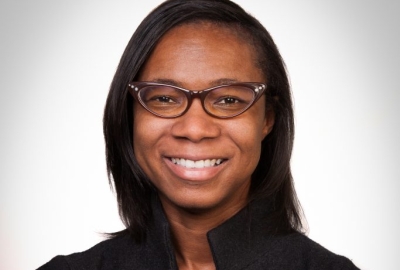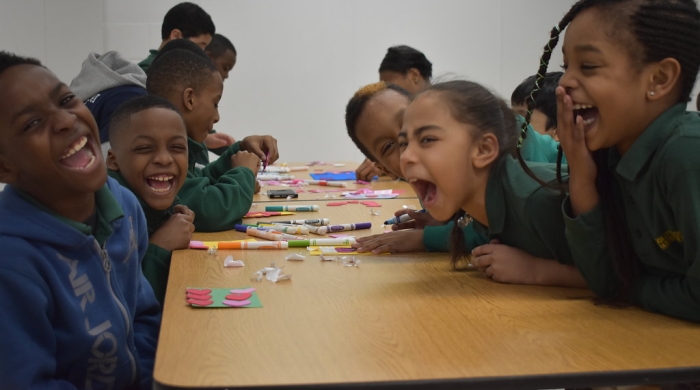
Since June 2018, Dr. Natasha Strassfeld has partnered with and conducted research at the Cuyahoga County Court of Common Pleas, Juvenile Division, a county that includes Cleveland, Ohio and its metropolitan area. Dr. Strassfeld’s pilot project, supported by the IHDSC Seed Award program, examines the experiences of professionals who work within the Cuyahoga County’s court system that serves incarcerated or detained youth. On the Ground spoke to Dr. Strassfeld about her research partnership and how seed funding impacted her work. Her answers have been edited for clarity and length.
What type of roles does "professionals" who work within the justice system cover?
Strassfeld: The really amazing thing about court systems is that all sorts of professionals come into contact with system-involved youth, and these professionals deliver a variety of services that cover the entire lived experience of a youth—namely, education services, mental/behavioral health services, or employment and transition/reentry services. These services are multidimensional and, often, professionals delivering these services need a complex set of skills and knowledge bases to do their work effectively.
Within this project, one long-term aim has been to preliminarily gain a sense of the breadth and depth of people who come in contact with kids who are within the juvenile justice system. With the findings from this portion of my work, I hope to provide insight to professionals within the juvenile justice system regarding the work that their other colleagues are doing. Not only might this improve the quality of service delivery and break the often-siloed approach to serving youth, but it might also help juvenile justice system professionals better understand the experiences of youth themselves. It is fortunate to have a partnership with a juvenile justice system that has led the way in this approach. In addition, by better understanding the experiences of juvenile justice system professionals, I have also been able to develop a greater understanding of the types of interventions I am interested in developing for both incarcerated or detained youth and juvenile justice system professionals. I am very grateful to the Court system for allowing me to observe, interview, and have time with professionals to ask them about their lived experiences and training.
We have heard from other researchers about the challenge of establishing partnerships. For example, there is an initial “getting-to-know-you” phase that can be difficult. How was having an IHDSC seed award helpful to building the partnership at a very early phase, and what is the potential for scaling up?
Strassfeld: First, I believe that it is important to engage within the communities where you conduct research. I am deeply familiar with Northeast Ohio, but I also spent a fair amount of time last summer “shadowing” professionals within the Court system before I started conducting interviews or developing out my lines of future inquiry. They understand these systems better than I do, and I value their expertise. Also, the Seed Award funding provided me with a fantastic opportunity to gain a greater understanding of this particular system as well as the opportunity to ask my colleagues at the Court for their insight regarding areas of need and future projects with more significant impact.
You recently received a Spencer Foundation award to continue examining the juvenile justice system’s role in educating youth and improving outcomes. How did IHDSC seed funding serve as a springboard for the phase of your research work?
Strassfeld: The support from IHDSC has been invaluable to me as I have applied for other grant funding, such as support from the Spencer Foundation, to continue to expand this line of work. Not only has the development of a proposal for the Seed Award compelled me to add further lines of inquiry for future research, but I have also developed strong and supportive relationships to help conduct the research at both IHDSC and the partnership site.
Learn More:
IHDSC Seed Award Program
IHDSC is committed to funding new projects that bridge multiple domains of expertise and further the mission of the Institute.
Partnership
IHDSC's approach to partnership is guided by a set of partnership principles and the aim to create new knowledge of effective policies and practices and their implementation across multiple sectors and settings, and build the capacity to eliminate disparities and foster learning, health, and development for children and youth in our communities.
Partnering to Improve Afterschool
What role can afterschool programs play in addressing inequality and promoting opportunities? The Advancing Collaborative Research in Out-of-School Settings (ACROSS) partnership represents a unique partnership between researchers from The Institute of Human Development and Social Change and Good Shepherd Services. Read a Q&A with Dr. Miranda Yates, Dr. Elise Cappella, and Sophia Hwang.




